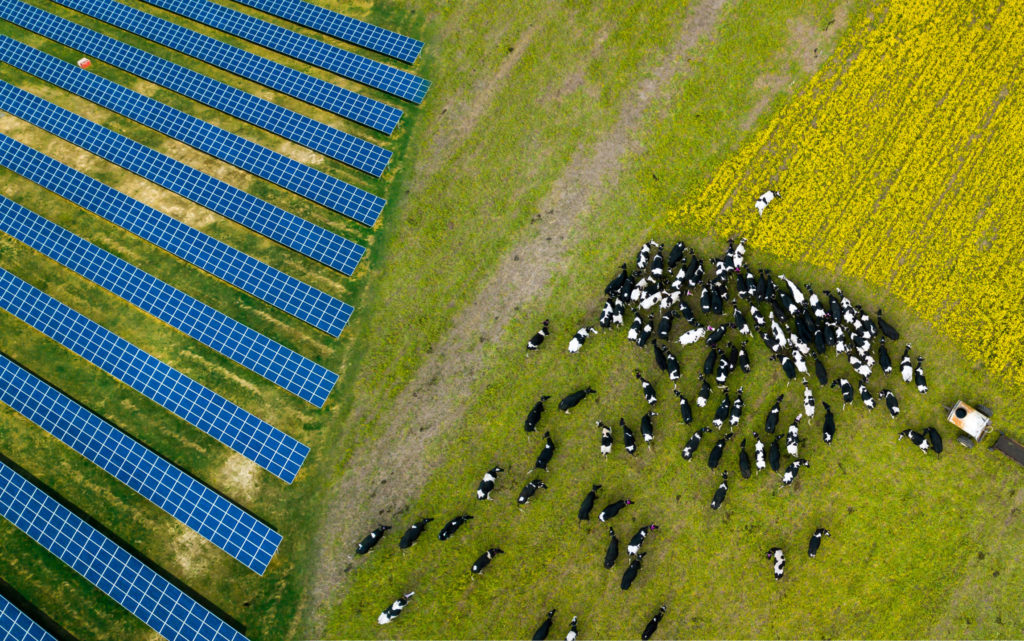Rural Clean Energy Innovation
The Rural Clean Energy Innovation Program marks a new opportunity for Commerce to support the research, development, and implementation of clean energy in Washington’s rural communities. Funded through Washington’s Clean Energy Fund (CEF), this program allocates $4.9 million to advance clean energy through a new grant program, with allotments for bioenergy and tribal energy projects and a workgroup.

Rural Clean Energy Grants
The Rural Clean Energy Grant Program provides $4.6 million in clean energy grant funding. Building on previous CEF dairy digester programs, this program includes specific funding for dairy digester bioenergy grants, rural clean energy innovation grants, and tribal grants.
Previous CEF Grants
In May 2020, Commerce announced $970,000 in grants from Clean Energy Fund 4 (2019-21 Capital Budget) through a competitive application process.
- Grants had to be matched at least dollar-for-dollar with other non-state funding sources.
- Awards included at least one project east of the Cascades and one project west of the Cascades.
- Four projects were funded to improve energy efficiency in the operations and marketing of biogas, nutrients, fiber, and other digester co-products.
Awardees
- DeRuyter Dairies (Outlook, Yakima County): $164,145 to convert the DeRuyter Dairies from flush to flush-flume, reducing the volume of water mixed with manure and improving digester capacity, efficiency, and biogas production, as well as recovery of nutrients and fiber.
- Edaleen Cow Power (Lynden, Whatcom County): $300,000 at Edaleen Cow Power (ECP) to acquire equipment (hydrogen sulfide scrubber) and infrastructure (manure pipeline) to complete a new long-term offtake agreement and associated business plan. This plan can provide ECP and potentially other
existing and new projects with higher-value purchase agreements for power when the power is used for electric vehicles. - FPE Renewables (Mt. Vernon, Skagit County): $300,000 to purchase and install a 10-20 wet ton/hour food residuals de-packaging system at a permitted material recovery and recycling facility. The system supports production and delivery of a new slurry feedstock stream for FPE Renewables’ on-farm anaerobic digester, as well as other partnering digesters in western Washington.
- Organix, Inc. (Outlook, Yakima County): $205,855 for a comprehensive pilot study to investigate the potential benefits of processing anaerobic digester effluent using the BioFiltro BIDA System. This system is
anticipated to improve air quality by mitigating noxious odors and reducing greenhouse gases and clean water for reuse in the dairy flush system.
Rural Clean Energy Work Group
Sub section (a) 14 of 1064 of the Substitute House Bill 1080 (2021-23 Capital Budget) (PDF) required Commerce to develop a strategic plan and recommendations for increasing access to clean energy investments in rural communities. To fulfill this requirement, Commerce convened a Rural Clean Energy Working Group that identified programs, investments, and policy changes that align with the 2021 State Energy Strategy. The work group met four times between October 2021 and January 2022. Commerce integrated the resulting recommendations and strategic plan into a legislative report (PDF) submitted to the Legislature.
